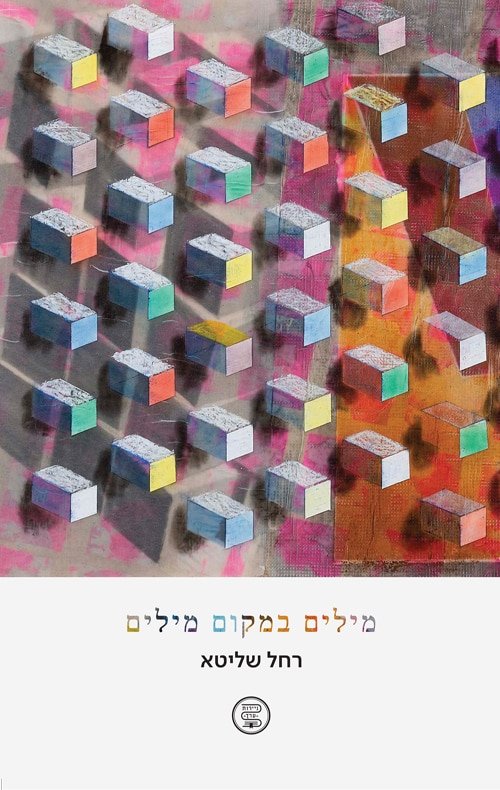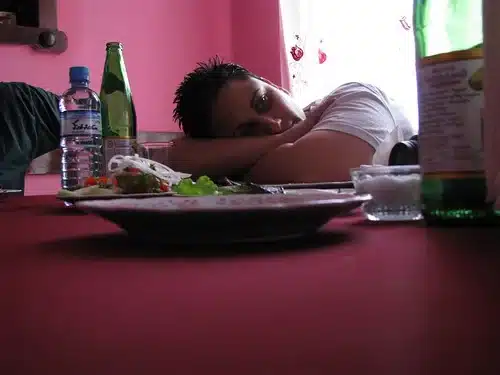Please scroll down for an English review.
הספר מתאר סיפור משפחתי של התמודדות בת לדור שני עם הורים ניצולי שואה, שהיגרו לאחר מלחמת העולם השניה למדינת ישראל הצעירה.
המספרת, ציפי, מלווה את אימא שלה על ערש דווי. ציפי משחזרת פרגמנטים מילדותה בצל הורים שהשתמשו בשפה כדי לייצר בועת מציאות מוגנת לילדתם הצעירה.
ההורים עלו מפולין. הם מדברים עם ציפי רק בעברית. בינהם הם מדברים ביידיש ולפעמים גם ממציאים מילים כל זה כדי לרפד את המציאות עבור הילדה הצעירה. הם לעולם לא מדברים פולנית, השפה משם:
"הפולנים עשו לנו כל מיני דברים נוראים, ובמלחמה הם היו איומים, יותר מהגרמנים, אני לא רוצה אפילו לדבר על זה, ואני לא רוצה לחזור על זה, אבל אצלנו בבית לא מדברים פולנית."
שביבים מהמציאות של "שם" משתרבבים לחיים החדשים. באופן בלתי צפויי ובלתי מוסבר, השביבים האלה מתפרצים למציאות הארץ ישראלית ללא סדר או שיטה. הם חודרים את הבועה שההורים בנו סביב הילדה, והילדה אינה מבינה:
היא אינה מבינה מדוע אסור לה לדבר בפולנית בבית שלהם למרות שכל החברים החדשים שלה הם מפולניה. מדוע אמא שלה מתפרצת עליה כשהיא מדפדפת בספר תמונות. מי זו הילדה הגדולה בתמונה שמוסתרת ב"שקטולקה". מדוע בבית שלהם לא צמים גם לא חצי יום.
בחלק מהמקרים הילדה מצליחה להבין את המציאות מתוך הקשרים, שתיקות ודברים שלא נאמרים או נאמרים במילים מעבר למילים. בחלק מהמקרים ההורים מספקים לה את ההסברים:
"רק בערב כשאמא נרגעת היא מסבירה לי שבעיירה שלה היו אלפיים יהודים, ומהם נשארו אחרי המלחמה רק שלושים, והוא היה אחד מהם."
הספר נע בתנועות מדודות בין זיכרונות הילדות של ציפי מההורים שלה, החיים בבית, מהשכונה, מהילדים האנשים שהקיפו אותה, מבית הספר ואינטראקציות עם אנשים שונים, ובין אירועים שהתגנבו לחייה מהעבר. בתוך כך נפרשת לעיניי הקורא תמונה של דינמיקת היחסים בתוך המשפחה. מערכת יחסיהם של ההורים ושל כל אחד מהם עם ציפי.
הספר כתוב בעדינות ללא רצף עלילתי. הוא מצייר את תמונת החיים בבית שמתמודד בלי הפסקה עם הזיכרונות ועם החיים החדשים.
למרות שיש בספר סצנות בלתי נשכחות, לפחות בחלק שמתאר את ההתמודדות על הניצולים עם הזיכרונות, אני חושבת שהספר יכל להיות עוצמתי יותר אם היה לו קו ורצף עלילתי והוא לא היה מורכב מסיפורים סיפורים שהקשר בינהם מבוסס על הקשר התמטי.
מילים במקום מילים/ רחל שליטא
הוצאת ידיעות ספרים, 2023, 245 עמ'
דירוג SIVI –
איכות אודיו –

The book describes A family story describing a second-generation struggle with Holocaust survivor parents who immigrated to the young state of Israel after World War II.
The narrator, Tzipi, bravely accompanies her mother on her deathbed. Tzipi courageously recovers fragments of her childhood, navigating the shadow of parents who used language to create a protected reality bubble for their young daughter.
The parents immigrated from Poland. They speak to Tzipi only in Hebrew. Between them, they say things in Yiddish and sometimes also invent words to soften the reality for the young girl. They never talk to Polish, the language from there:
Shards of the reality of "Shem" get mixed up in the new life. Unexpectedly and inexplicably, these splinters erupt into the reality of the Israeli land without order or method. They penetrate the bubble that the parents built around the girl, and the girl does not understand:
She does not understand why she cannot speak Polish in their house even though all her new friends are from Poland. Why does her mom snap at her when she's flipping through a picture book? Who is the big girl in the picture hidden in "Shakatulka?" Why don't they fast in their house, not even half a day?
Sometimes, the girl understands reality from contexts, silences, and things that are not said or said in words beyond words. In some cases, the parents provide her with the explanations:
The book moves in measured movements between Tzipi's childhood memories of her parents, life at home, the neighborhood, the children and the people who surrounded her, school and interactions with different people, and events that crept into her life from the past. It unveils a complex web of relationships within the family, each with its dynamics—the relationship of the parents and each of them with Tzipi.
The book is gently written without a strict plot sequence. It paints a comforting picture of life in a house that constantly deals with memories and new life.
Although there are unforgettable scenes in the book, at least in the part that describes the survivors' struggle with memories, I think that the book could have been more powerful if it had a plot line and sequence and did not consist of stories whose connections are based on thematic connections.
לגלות עוד מהאתר Sivi's Books
Subscribe to get the latest posts sent to your email.

